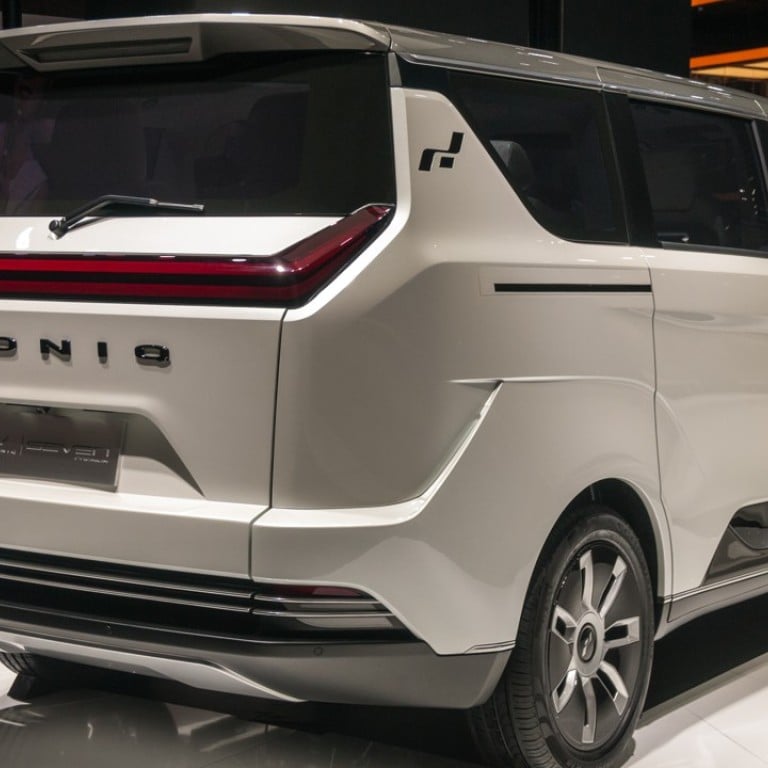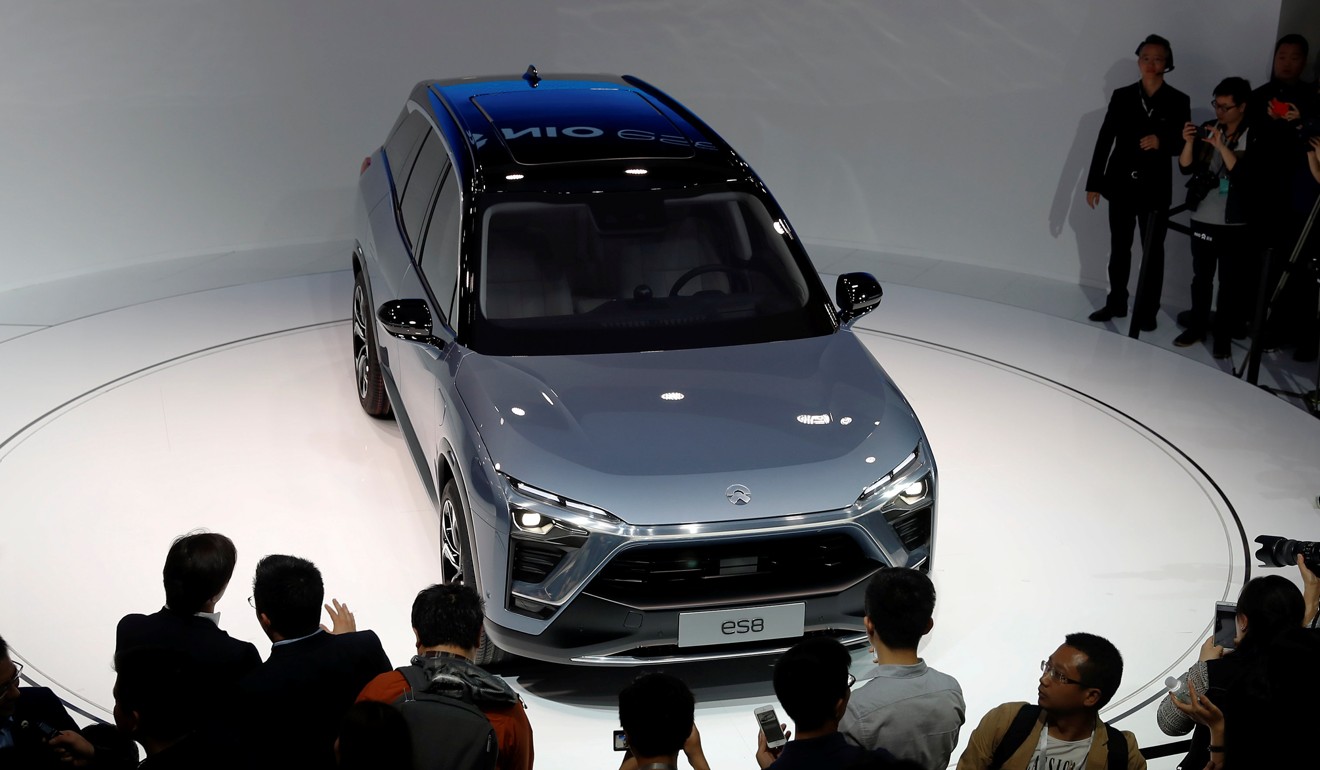
Chinese start-up Iconiq set to enter country’s electric car market from 2019
The company says its seven-seater SUV model will set itself apart by focusing more on passengers’ experience than the driver’s
Chinese electric vehicle start-up Iconiq Motors plans to start production in 2019 of a few thousand of its seven-seater Iconiq 7 car, becoming the latest maker to say it is joining global and domestic rivals in pursuit of the government’s goal to have five million new-energy vehicles on the roads by 2020.
Alan Wu Nan, president of Iconiq, said the company is aiming to build a global brand through its partnerships with Microsoft and Austrian contract car maker Magna Steyr, and was waiting for its factory to be ready.
“We have bought an existing factory in Tianjin and will use it as our production base after renovations,” he told reporters on Tuesday. “We have received a tremendous amount of orders, but the cars will be built based on our capacity.”
Sales of new-energy vehicles in China surged after 2014 as the government, mindful of the worsening pollution problem in many cities, offered subsidies to support the manufacturing and sales of electric cars and plug-in hybrids.
But sales slowed this year due to a further 20 per cent reduction in the subsidies, while an announcement that the incentive would be phased out altogether by 2020 has also deterred buyers. Buyers of electric vehicles can now get up to 66,000 yuan (US$9,995) in subsidies, only half of what was offered three years ago.
Last weekend another Chinese start-up, NIO, launched its ES8 seven-seater electric vehicle. NIO is backed by internet giants Tencent and Baidu, as well as smartphone maker Xiaomi. It has priced its vehicle at about half that of US maker Tesla’s popular Model X car.
Iconiq raised 1.2 billion yuan from a consortium of investors, including Ping An Insurance and GSR Ventures, in its latest round of financing, but has not disclosed the total amount of funds it has received so far. It also plans to set up a manufacturing plant in southern China.
Bruno Lambert, Iconiq’s chief executive, said that its cars would be distinct from others, with a focus on speed and styling and on passengers’ experience rather than the driver’s.
“We need to have a family of cars as soon as possible,” said Lambert. “Our partnerships with world leaders in design, engineering and technology mean that our products will truly stand out in the evermore crowded EV market,” he said.
The company did not elaborate on the details of the battery and range of the cars.
Lambert would not comment on whether Iconiq would team up with Chinese internet firms to develop driverless vehicles in the future.


